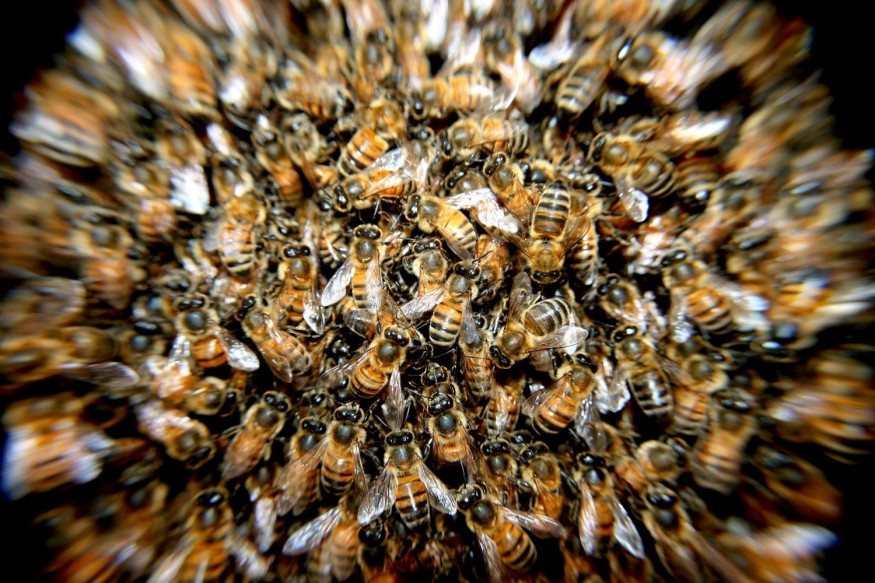
Humans should be alarmed over an "insect apocalypse," according to researchers. A new report suggests half of the insects worldwide have been declining since the 1970s due to the destruction of nature and heavy pesticide use.
A global scientific review published earlier this year calculated that the quantity of insects is decreasing by 2.5 percent each year, with more than 40 percent of insect species threatened with extinction.
The report, written by one of the UK's leading ecologists, said 23 bee and wasp species have gone extinct in the last century. The number of pesticide use, on the other hand, has almost doubled over the previous 25 years.
Butterflies that specialize in certain territories have declined by 77 percent since the mid-1970s, according to the report. Also, flycatchers - which only eat flying insects - have dropped by 93 percent since 1967. The report added other insects have plummeted by 46 percent.
Prof Dave Goulson, at the University of Sussex, UK, who wrote the report for the Wildlife Trusts, said the decrease in the insect population could be much more.
"If we [humans] don't [prevent] the decline of [the insects], there [would] be [serious] consequences for all life on earth [and] for human wellbeing," Dave said. He said studies of insect populations over decades are already limited.
He added the overwhelming amount of proof suggests the rapid decline is a "real phenomenon." Dave expressed his concern over the suggestion that "researchers need more long-term studies" to ensure the results. He explained that they could no longer wait for another 25 years before doing anything.
Gary Mantle, chief executive of Wiltshire Wildlife Trust, said people have to take a risk in taking necessary building blocks of life. He said insects and other invertebrates could quickly recover if human beings would stop depriving them of their existence and rebuild the habitats the insects require to survive.
Insect populations can be rescued, says environmentalists
The planet is at the beginning of sixth mass extinction in its history, with massive losses reported in larger animals that are easier to analyze. However, insects are the most diverse and abundant animals - exceeding the number of humanity by 17 times.
Environmentalists said that insect populations could be rescued by introducing firm targets to ban pesticide use and creating public parks and gardens more wildlife-friendly.
Goulson said the possible insect apocalypse may be reversed with the help of "rewilding" urban gardens and parks.
"A lot of people are buying the idea which they could make their gardens more wildlife-friendly by letting go of [pesticide] control a bit. [Many] councils are also pushing for pesticide-free environments," Goulson said.
Virtually all farms could significantly cut their pesticide use while still producing as much food, according to a 2017 study. The research also showed that chemical treatments could be cut without affecting farm profits on three-quarters of farms.
Matt Shardlow, chief executive of the charity Buglife, told The Guardian the latest study reveals that most invertebrate species are failing to return to their natural habitats to keep in touch with the climate envelope they needed to survive due to the isolated quality habitats.
Goulson said there is this potential opportunity to "revise the farming system entirely." He said giving funds for boosting nature and other public goods, rather than simply owning land, was a really exciting possibility.
© 2025 NatureWorldNews.com All rights reserved. Do not reproduce without permission.




